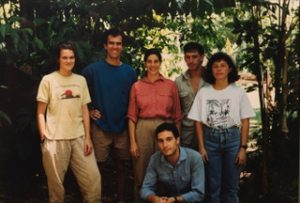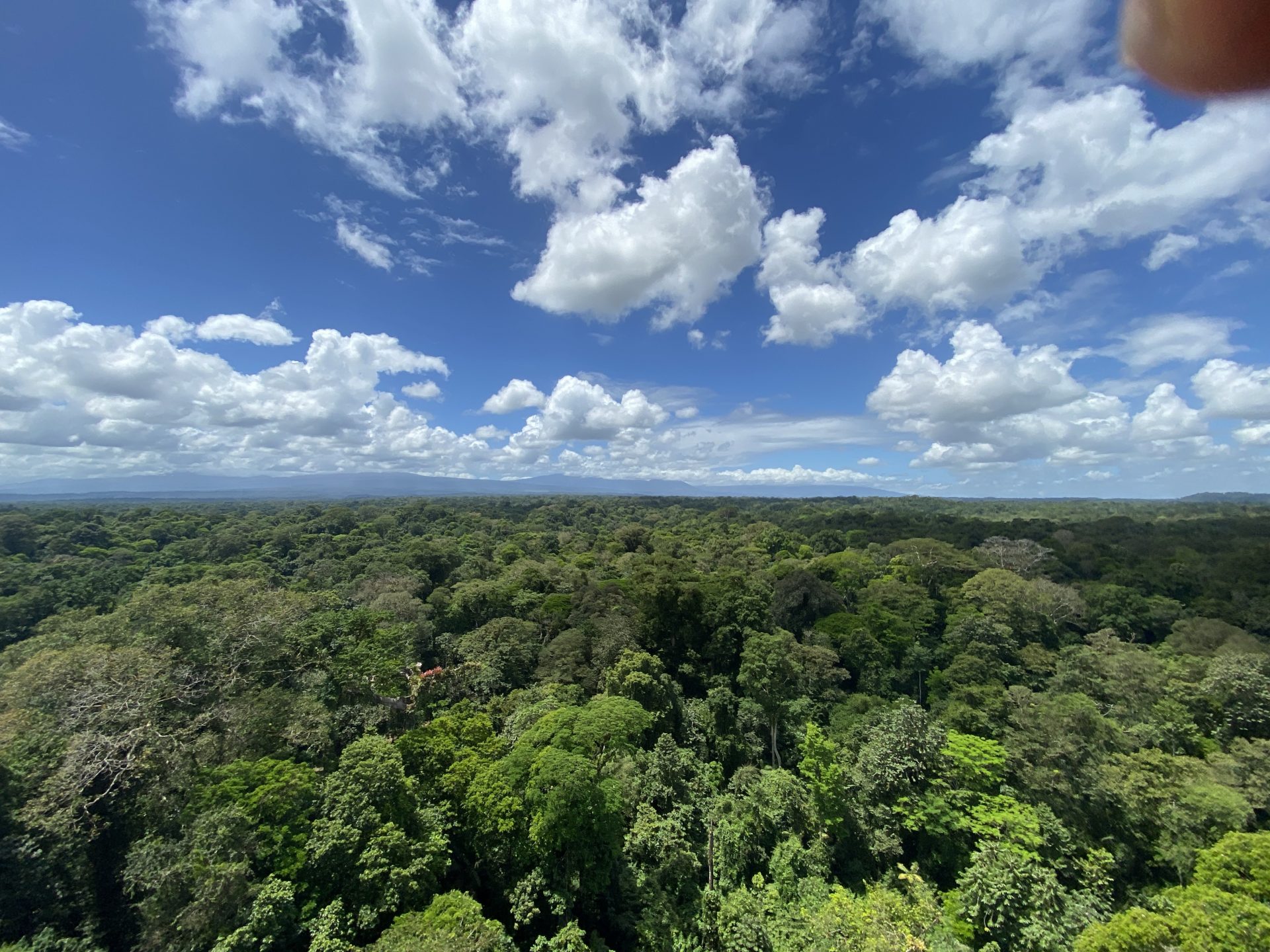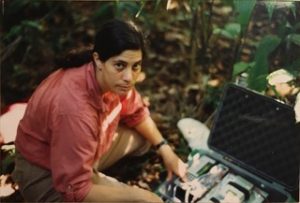Professor Robin Chazdon, Professor Emerita at the University of Connecticut and Research Professor at the University of the Sunshine Coast in Queensland, Australia recently received honorary membership in the British Ecological Society. This is the highest honor given by the society and recognizes exceptional contributions to “the generation, communication, and promotion of ecological knowledge and solutions.” OTS has been a core part of Chazdon’s career as an ecologist. She was a student on the OTS “fundamentals” graduate course in the early 80s and conducted her dissertation research on ecophysiology of palms at the La Selva Research Station. Chazdon later led transformative work on tropical secondary forest regeneration using a series of permanent forest plot at La Selva and in the Sarapiqui region.
Over the years, she trained many graduate students who worked at La Selva. Some, like Catherine Cardelus, carry on that legacy, bringing her own students to experience the wonder of the tropics at La Selva. Others, like me, have taken Chazdon’s lessons elsewhere – leading work on forest ecology and management in both temperate and tropical forest. Chazdon’s impact on forest restoration science is particularly notable. Her ecological work laid a strong foundation for the value of secondary forests and their importance for people, reforestation, and biodiversity. More importantly, Chazdon’s tireless advocacy for integrative social-ecological approaches has impacts on restoration science and practice globally.
Rebecca Montgomery
Professor, Institute on the Environment, University of Minnesota
In the summer of 1996, as a recent college graduate and a budding tropical biologist, I volunteered to work at La Selva Research Station in Costa Rica with two graduate students, Rebecca Montgomery and Adrienne Nicotra. I did not understand the workings of graduate school, but through the long days and exciting work with Rebecca and Adrienne, I learned about their advisor, Robin Chazdon. I was convinced that I wanted to work with her before I had even met her. When I met her, I met her children and husband at the same time. While I was trying to seem professional and a great potential student, her children were calling out bird names and pointing out the poison dart frogs. They knew much more about tropical organisms than I did. I was lucky, and grateful, she took the city girl on as a student.
Chazdon is a pioneer in tropical research, both directly through her research and indirectly through facilitating research. Her work has used chronosequence and forest dynamics to study forest regeneration in Costa Rica and Mexico and many other locations in the tropics.
She facilitated research in many ways. She helped establish family housing at one of the Organization for Tropical Studies field stations, La Selva Research Station, which made it possible (and acceptable) to conduct fieldwork with children. She has also been integral to the leadership of the Association for Tropical Biology and Conservation which supports students and their work in the tropics, and critically, she trained graduate students.
Catherine Cardelús
Professor of Biology & Environmental Studies, Colgate University

There are many things I admire about Robin Chazdon: her deep and at the same time broad ecological knowledge, from her background in plant eco-physiology to functional and community ecology, especially forest regeneration, to landscape-level restoration of tropical socio-ecosystems; her sharp, insightful, and analytical thinking; her enthusiasm and amazing capacity to lead huge projects and endeavors, including multi-year and multi-site grants, being Editor-in-Chief of Biotropica, President of ATBC, and Director of the international and multidisciplinary research network PARTNERS. I also admire and cherish the natural ease with which she relates to all sorts of people with a respectful, humane, warm, and open-minded attitude and a true concern for people’s working/living conditions and well-being, as well as for biodiversity conservation and ecosystem restoration. Chazdon is not only an outstanding researcher, mentor, and teacher; she is an amazing and wonderful human being. I am deeply grateful for all she has taught me and delighted that she has been awarded honorary membership in the British Ecological Society (BES), a well-deserved honor that follows the BES President’s Medal and Governing Board of the Ecological Society of America.
Juan Dupuy Rada
Director Unidad de Recursos Naturales, Centro de Investigación Científica de Yucatán), México

